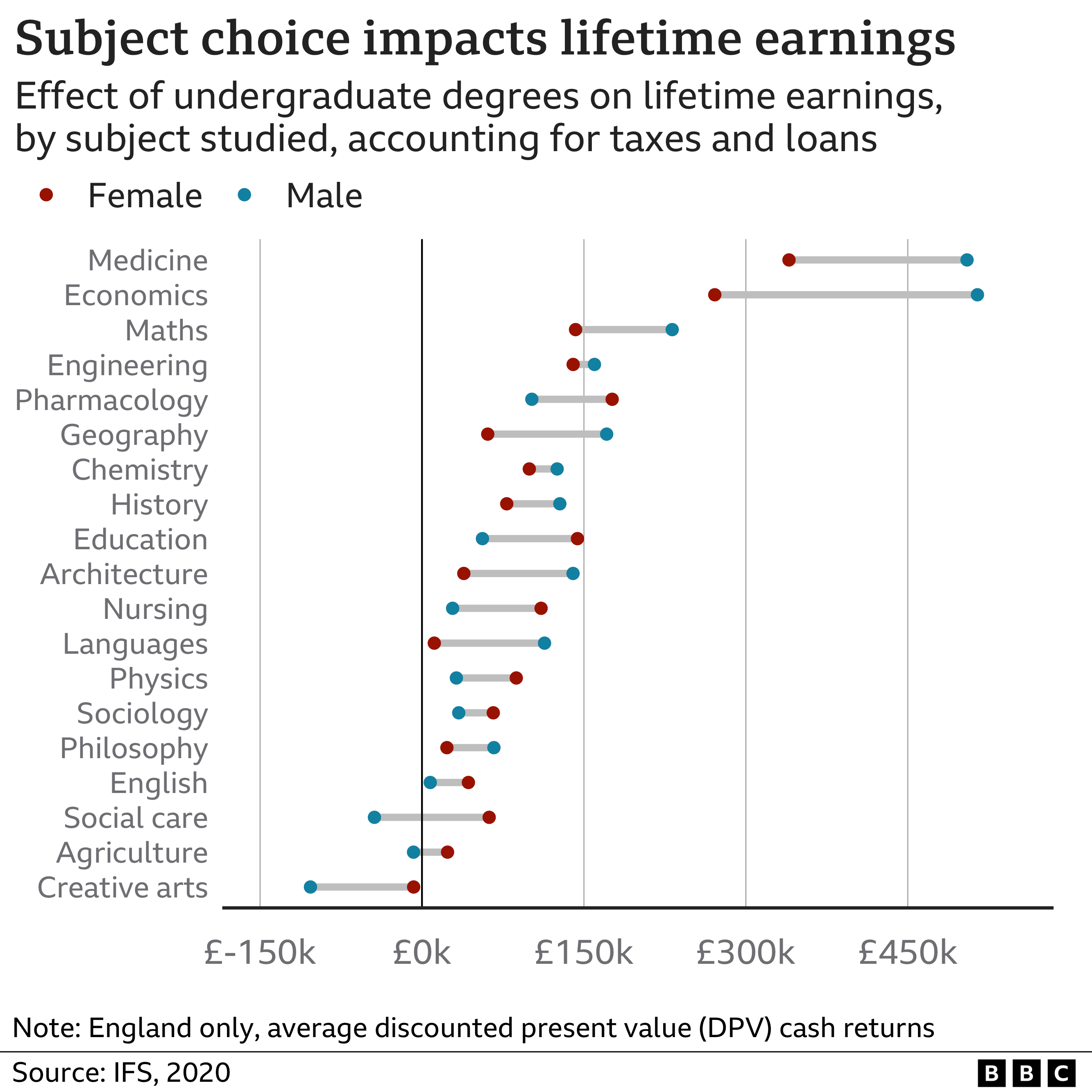
Prime Minister Rishi Sunak has pledged to crack down on “rip-off” degrees that do not lead to graduate jobs.
Under plans due to be announced later, universities in England will be forced to limit the number of students they recruit onto underperforming courses.
But Labour said the move would “put up fresh barriers to opportunity in areas with fewer graduate jobs”.
Universities UK, an advocacy group, said university was a great investment for the vast majority of students.
A spokeswoman for the organisation warned any measures must be “targeted and proportionate, and not a sledgehammer to crack a nut”.
Under the plans, independent regulator the Office for Students (OfS) will be asked to limit the number of students that universities can recruit to courses that do not have “good outcomes” for students.
The government said this would include courses that have high drop-out rates or have a low proportion of students going on to professional jobs.
Nearly three-in-10 graduates do not progress into highly-skilled jobs or further study 15 months after graduating, according to the OfS.
The OfS already has the power to investigate and sanction universities which offer degrees falling below minimum performance thresholds – but the new rules would require the regulator to limit student numbers for those courses.
The current thresholds for full-time students doing a first degree are for:
- 80% of students to continue their studies
- 75% of students to complete their course
- 60% of students to go on to further study, professional work, or other positive outcomes, within 15 months of graduating
Universities UK said the UK had the highest completion rates of any OECD country and overall satisfaction rates were high.
“However, it is right that the regulatory framework is there as a backstop to protect student interests in the very small proportion of instances where quality needs to be improved,” a spokeswoman said.
Labour’s shadow education secretary Bridget Phillipson said the announcement was “an attack on the aspirations of young people”.
Liberal Democrat education spokesperson Munira Wilson said the prime minister was “out of ideas” and had “dug up a policy the Conservatives announced and then unannounced twice over”.
She said: “Universities don’t want this. It’s a cap on aspiration, making it harder for young people from disadvantaged backgrounds to go on to further study.”

The government also announced it would reduce the maximum fees universities can charge for classroom-based foundation-year courses, from £9,250 to £5,760. In 2021/22, 29,080 students were studying a foundation degree.
Foundation year courses are designed to help prepare students for degrees with specific entry requirements or knowledge, such as medicine and veterinary sciences.
However, the government said research suggested too many people were encouraged to take a foundation year in some subjects like business, where it was not necessary.
University Alliance, which represents professional and technical universities, said cutting fees for foundation year courses was “disappointingly regressive” and “makes them financially unviable to deliver”.
Chief executive Vanessa Wilson said: “Disadvantaged students and the ‘Covid generation’ will lose out if this provision is reduced or lost.”
She added that the government had chosen “to berate one of the few UK sectors which is genuinely world-leading”.
Mr Sunak said: “The UK is home to some of the best universities in the world and studying for a degree can be immensely rewarding.
“But too many young people are being sold a false dream and end up doing a poor-quality course at the taxpayers’ expense that doesn’t offer the prospect of a decent job at the end of it.”
Education Secretary Gillian Keegan said: “These new measures will crack down on higher education providers that continue to offer poor quality courses and send a clear signal that we will not allow students to be sold a false promise.”
Related Topics
-
-
26 August 2022

-

